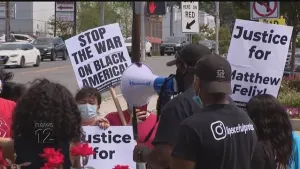More Stories
MORE: Reflections on Race: 'Hatred come into young kids at a young age from their parents'
MORE: Reflections on Race - 'What is it about the complexion of our skin that makes you so angry?'
MORE: Reflections on Race - 'These aren't isolated incidents, this is a culture in America'
MORE: Reflections on Race - 'What is it about the complexion of our skin that makes you so angry?'
MORE: Reflections on Race - 'These aren't isolated incidents, this is a culture in America'
Dudley says she didn't watch the George Floyd video, and that similar events and experiences surround children growing up Black in America
"I didn't feel it necessary for me to watch it," says Dudley. "I definitely feel like, you know, I'm almost 20 and I've seen so many different acts of police brutality and violence and you know, when you grow up Black in America, your parents make sure to drill that into you and drill that knowledge into you. I have so many different memories of like, the opening of the National African American History Museum in D.C. My parents brought me there that weekend and you see like, all of the photos and all of those different situations, so I definitely ... a lot of it's very shocking for the you know, the white, general public, media to see. But you know, when you're Black in this country, you're kind of like, 'I don't know if I can handle watching this again.' I don't necessarily want to be reminded of this."
Dudley says having grown up on the East End in a predominantly white school and neighborhood meant she had to work on her self-worth in her teens. She says she eventually realized the negative impact growing up where she did had on her.
"I definitely think, growing up as a Black person in you know, predominantly white school and neighborhood and just environment, just definitely I had to work on my self-worth, as like 16, 17, 18, 19 - realizing like I am beautiful, like I can be just as smart, I do deserve the same education, the same rights, I don't necessarily need to stay back, I don't have to be the angry, loud Black woman, just because I'm passionate about something, so definitely coming to all those realizations you know, one step at a time and realizing just how it has truly like negatively impacted me growing up in a white neighborhood. I mean I will tell everyone, my education was fantastic, I loved all my teachers, but they never did anything for me, racially, growing up out here.
More from News 12
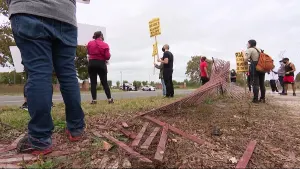
Long Island group gathers at Brentwood State Park to demand justice for Breonna Taylor
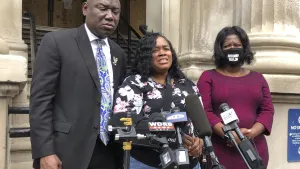
City to pay millions to Breonna Taylor's mom, reform police
2:46
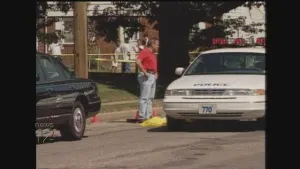
Nassau District Attorney's Office to reinvestigate 1998 Hempstead police-involved shooting
1 day, 11 hours
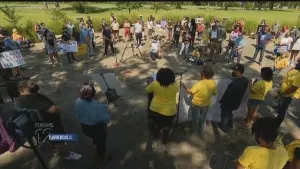
Protesters hold rally outside of Dennison Building in Hauppauge to fight for police accountability
21:27:47
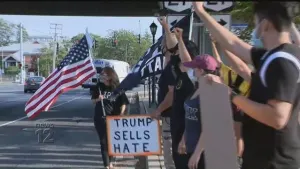
Merrick rally demands justice for Jacob Blake, Black man shot 7 times by Wisconsin police
1 day, 15 hours
